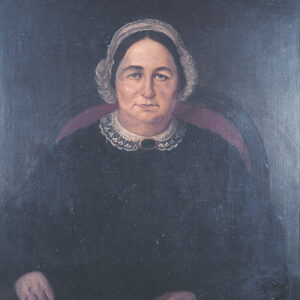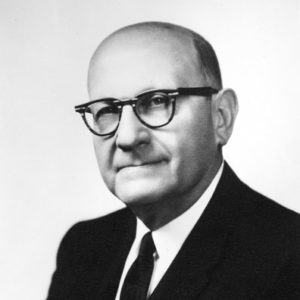calsfoundation@cals.org
Reform Judaism
Jews have followed the teachings of a unique religion for centuries: Judaism. Reform Judaism is a modern Jewish denomination emphasizing religious values reflected in modern civic engagement. As Central European Jews began immigrating to the United States in the eighteenth century, Reform Judaism quickly became the Judaism-of-choice among many Jewish Americans. Seeking to uphold rights of all individual citizens and pursuits of justice, Reform Judaism has become the largest Jewish denomination in the United States. By end of the nineteenth century, Jewish Arkansans had begun responding to a multitude of social issues related to Jim Crow laws, religious intolerance, and discrimination against lesbian, gay, bisexual, transgender, and queer (LGBTQ+) communities. Reform Jewish ethics are embraced by many Jewish Arkansans actively pursuing justice and social causes beneficial for all Arkansans.
Embracing Reform Judaism marked the beginning of major changes in Jewish Arkansans’ lives. Activities such as reciting traditional Jewish prayers only in the sacred language of Hebrew, separating seats for men and women during worship services, and ordaining only male rabbis (Jewish clergy) were viewed by Reform Jews as ancient religious traditions difficult to apply in the American South. A new goal for Jewish Southerners was to be treated fairly by their new neighbors in small towns within Arkansas Territory. Arkansas’s first Jewish settlers traveled from New Orleans, Louisiana, to Washington (Hempstead County) in 1823, seeking a welcoming community with commercial and social opportunities. By 1824, Abraham and Fanny Block had founded general stores along river towns from Fulton (Hempstead County) to Little Rock (Pulaski County). While somewhat religiously observant, the Block family were more concerned about getting along with their Christian neighbors in Arkansas Territory, soon to become a new U.S. state in 1836. U.S. Reform Judaism began to advocate ways Jewish Southerners could privately observe Jewish holidays and publicly become socially active citizens. As Jewish merchants began to establish homes along Arkansas and Red rivers, they, too, enjoyed social and political freedoms found in Arkansas, in contrast to centuries of anti-Semitic persecutions. Stemming from a desire for Jews to be equally treated as Americans and Arkansans, Reform Judaism helped many Jewish Southerners define their American, Arkansan, and Jewish identities after the Civil War.
As more Reform Jewish Germans immigrated to Arkansas, many of Arkansas’s synagogues began affiliating with the U.S. Reform Jewish movement. Little Rock became home of the first Reform Jewish Arkansas synagogue in 1866: Congregation B’nai Israel. With a long history of being a socially active Jewish congregation, the synagogue emerged as the epicenter of Reform Judaism in Arkansas. Rabbi Isaac Mayer Wise, founder of U.S. Reform Judaism, traveled to Little Rock and dedicated Congregation B’nai Israel’s new synagogue location in 1897. Congregation B’nai Israel developed and continues to be Arkansas’s largest Jewish synagogue in the twenty-first century.
A national organization representing Reform Jews, the Union of American Hebrew Congregations (UAHC), was established in 1873. The UAHC was renamed the Union for Reform Judaism (URJ) in 2003. The URJ continues to provide support in the twenty-first century of Reform Jewish activities dedicated to ending all forms of discrimination and intolerance throughout the United States.
Reform Jewish Arkansas history is centered upon religious pursuits addressing three major social issues: advocating for African American civil rights, organizing religious dialogues between Jews and Christians, and standing up for fair treatment of LGBTQ+ communities. From 1954 to 1968, more Reform Jewish rabbis began supporting the civil rights movement despite threats of violence. Reform Rabbi Ira Sanders of Congregation B’nai Israel attempted to repair Arkansas’s legal and social assault on Black communities. As anti-Semitic violence was being committed against Jewish Southerners for opposing racial segregation, Rabbi Sanders was guided by Reform Judaism’s commitment to Jews and Christians joining together to morally oppose unjust racial laws.
Rabbi Sanders discovered the consequences of violating Arkansas’s Jim Crow laws shortly after arriving in Little Rock in 1926. Sanders boarded a Little Rock public city streetcar and proceeded to sit down next to an African American in one of the streetcar’s back seats. (The Black passenger had been forced by racially discriminatory laws to only sit in the back sections in all public transportation.) Being a new resident from Kansas City, Sanders had unknowingly broken Arkansas’s racial segregation laws. The driver angrily stopped the streetcar and reminded Sanders that he was in violation of Arkansas laws and that the police would be contacted. After a loud vocal protest against this injustice, the rabbi reluctantly complied with the driver’s stern request. In response, Rabbi Sanders ignited a Reform Jewish opposition to the state’s Jim Crow laws. He openly taught the pursuit of justice requiring both ethical action and unity with Christian Arkansans to bring an end to racial segregation.
Addressing and challenging Arkansas’s twentieth-century social problems presented another set of issues for Reform Jewish Arkansans, who wondered if Christian Arkansans would begin viewing their Jewish neighbors as foreign immigrants spreading non-Christian values. Anti-Semitic actions and violent threats caused many Jewish Arkansans to pause from openly opposing unjust state laws. Most American Jews were vocally opposed to racial segregation, but Southern Jews were reluctant to publicly protest against Jim Crow laws. The terror inflicted on African Americans was perceived as violence that could be extended to Jewish Arkansans opposed to racism. With significant social changes on the horizon, Reform Jewish Arkansans’ support of civil rights began evolving into a socially visible set of religious obligations—such as its support for the desegregation of Little Rock Central High School 1957.
After the Holocaust (1933–1945) and passage of the U.S. Civil Rights Act (1964), Reform Jews began sharing progressive religious and ethical goals with their fellow Christian citizens. Public events promoting religious tolerance and cooperation between Arkansas’s different religions became known as “interfaith dialogues.” Congregation B’nai Israel’s Rabbi Elijah Palnick became an active participant in Arkansas’s first interfaith organization: the Committee on Race and Religion (CRR). Palnick was joined by Disciples of Christ and Methodist clergy seeking a religiously diverse understanding of religious issues affecting Arkansans. The first interfaith dialogue meeting was held at Congregation B’nai Israel with more than 400 Christian clergy in attendance. These interfaith dialogue events have continued to bring together diverse Arkansas religious communities to speak up for civil rights, religious tolerance, and gender equality.
Reform Judaism also continues to speak against legal injustices faced by LGBTQ+ individuals. Reform Jewish Arkansas synagogues have been ardent supporters of LGBTQ rights within and outside synagogue life. In 2015, the URJ and Reform Jewish Arkansas synagogues stated that they “unanimously passed a resolution calling for the full inclusion of transgender and gender nonconforming individuals in our communities.” Embracing LGBTQ+ Jews and non-Jewish visitors with kindness has become an important Reform Jewish value.
For additional information:
Bush, Lawrence. “Opposing Segregation in Little Rock, Arkansas.” Jewish Currents: Activist Politics and Art, 2017. https://jewishcurrents.org/opposing-segregation-in-little-rock-arkansas (accessed March 5, 2022).
Congregation B’nai Israel. https://bnai-israel.us/ (accessed March 5, 2022).
LeMaster, Carolyn G. A Corner of Tapestry: A History of the Jewish Experience in Arkansas, 1820s–1990s. Fayetteville: University of Arkansas Press, 1994.
Moses, James I. Just and Righteous Causes: Rabbi Ira Sanders and the Fight for Racial and Social Justice in Arkansas, 1926–1963. Fayetteville: University of Arkansas Press, 2018.
Zola, Gary P. “The Ascendancy of Reform Judaism in the American South during the Nineteenth Century.” In Jewish Roots in Southern Soil: A New History, edited by Marcie Ferris and Mark I. Greenberg. Waltham, MA: Brandeis University Press, 2016.
Phillip Spivey and Ryan Clark
University of Central Arkansas
 Religion
Religion Abraham Block
Abraham Block  Fanny Block
Fanny Block  Ira Sanders
Ira Sanders 




Comments
No comments on this entry yet.